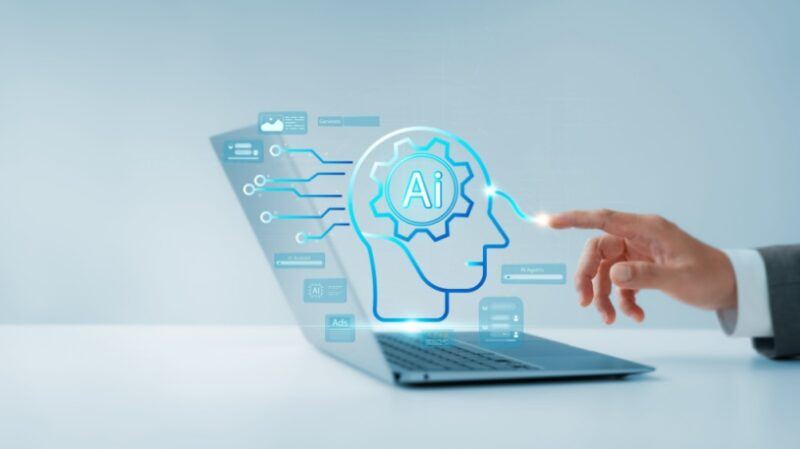
Is AI and Adaptive Learning Merely a Trend in LMSs?
Have you ever enrolled in an online course? If so, you’ve likely interacted with a Learning Management System (LMS). These platforms facilitate the creation, delivery, and management of educational content, while also tracking learner progress and organizing assessments. Recently, a significant transformation has occurred in LMSs, with a growing integration of Artificial Intelligence (AI). This technology enhances data analysis, predicts student needs, simplifies feedback, and even customizes entire learning journeys. But what does this trend truly entail?
Adaptive learning employs AI to tailor educational experiences to individual learners, taking into account their unique requirements, preferences, and proficiency levels. Unlike conventional courses, which typically follow a one-size-fits-all approach, adaptive learning systems dynamically adjust pathways based on user performance. For example, if a student encounters difficulties with a topic, the system may slow down and provide additional resources, while a student who excels can quickly move on to more advanced materials.
But does this mean adaptive learning is the future of education? Will all LMSs soon incorporate AI technology? Let’s explore the current AI features in LMSs, the motivations fueling this evolution, and what the future may hold.
Innovative AI Features in LMSs
Chatbots and Virtual Assistants
Many modern LMS platforms integrate AI-driven chatbots and virtual assistants to address user inquiries, guide navigation, and even provide emotional support. Available around the clock, these tools are vital for learners across various time zones. How do they operate? Chatbots learn from data; when users ask questions, they provide appropriate responses or direct them to the relevant sections of the platform. Additionally, some chatbots act as virtual coaches, issuing reminders about impending assessments, nudging users to finish tasks, and suggesting supplementary resources.
Smart Recommendations
Smart recommendation systems leverage AI to analyze a learner’s behavior, preferences, and performance to suggest the most relevant content. By examining data like completed courses, quiz scores, and engagement time, the AI curates personalized recommendations that might include additional resources, related courses, or content suited to the learner’s skill level and career aspirations.
Assessment Analytics
AI-enhanced analytics not only evaluate answer accuracy but also identify patterns, forecast outcomes, and offer guidance to both learners and instructors on subsequent steps. Through analysis of quiz results, AI can discern trends, such as students consistently missing specific questions or experiencing declines in performance over time. This valuable information can help tailor assessments, bridge learning gaps, and proactively address challenges.
Driving Forces Behind AI Integration in LMSs
Increased Accessibility of AI
Once seen as a costly venture requiring specialized expertise, AI is now widely accessible. Many LMS providers can utilize existing models and services, enabling even mid-sized platforms to introduce intelligent features. Modern LMSs are adaptable, allowing for the integration of third-party AI tools.
Demand for Personalized Learning Experiences
Today’s learners expect customized educational experiences, and AI is key to this personalization. Adaptive learning powered by AI allows content to evolve based on individual performance and preferences. The system might suggest additional resources if it detects a learner struggling, or accelerate progress if they demonstrate mastery.
Challenges of Remote Learning
The advent of the pandemic highlighted the necessity for remote education, with many institutions now relying on it. AI-enhanced LMS features address common challenges associated with remote learning, including engagement tracking, content recommendations, and automated feedback. As eLearning continues to thrive, AI’s role in streamlining these processes becomes increasingly beneficial.
Pressure to Achieve Better Learning Outcomes
Educational institutions face pressure to demonstrate progress to students, parents, and stakeholders. Businesses investing in employee training expect measurable results such as improved productivity and compliance. AI-equipped LMSs can aid learners in knowledge retention, identify those needing assistance, create tailored learning pathways, and provide data that validates learning success.
Is a Complete Shift to AI Inevitable for LMSs?
Currently, the EdTech landscape is brimming with innovation. As adaptive learning gains traction, the LMS sector must adapt accordingly. Will AI features dominate all LMSs in the future?
In one scenario, AI functionalities, including personalized learning paths and predictive analytics, may become standard. While some platforms already offer these, others will likely incorporate them as part of their basic packages.
Alternatively, not every organization may be prepared to embrace AI, resulting in optional features that institutions can activate based on readiness. This ensures greater control over costs and implementation timelines.
Additionally, with the availability of open-source LMSs such as Moodle, organizations can create tailored, cost-effective solutions if they possess the required technical expertise. However, this may widen the gap between institutions with ample resources and those struggling to keep pace with technological advancements.
Despite the promising advantages of AI, concerns about inequality persist. Institutions with greater budgets and technical capabilities will likely outpace others in adopting AI solutions. While it is probable that most LMSs will integrate AI eventually, the timeframe and effectiveness remain uncertain.
Conclusion
So, will every LMS embrace AI? Perhaps not immediately. With the growing demand for personalized learning and the increasing accessibility of AI tools, many LMSs are expected to adopt some form of AI, whether in-house or through third-party solutions. However, it’s essential to implement AI thoughtfully, emphasizing inclusivity and genuine improvement in the learning process. Without careful consideration, even the most advanced platforms can fall short. Ultimately, the goal is to enhance learning for all.



